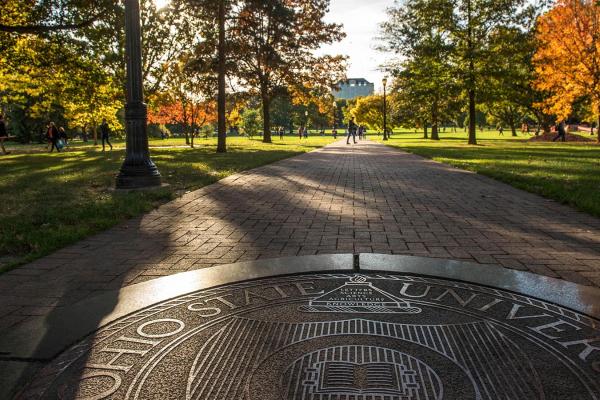
Research presentations will include the following STEAM Post-Doctoral Fellows:
- Katherine O’Brien - Evolution, Ecology and Organismal Biology
The STEAM Factory is a diverse and inclusive grassroots network of scholars at The Ohio State University that fosters unstructured interdisciplinary collaboration in research, outreach, and education. Over the past 7 years, the STEAM Factory has organically grown into the most diverse academic network in the University, embracing 200+ members in 66 departments across 13 colleges. Our study analyzes the growth using self-reported data, we demonstrate that the network has deepened over time with more collaborations and a greater overlap in collaborative clusters across diverse disciplines. Data were collected via a survey available to every member of the STEAM Factory. The survey was administered in January of 2018 and 2020 corresponding to member activity from the prior year including activities, job support, and collaborations. From this data, we conducted an analysis to understand network dynamics and activities that fostered connections. Overall membership within the STEAM Factory increased from 2017 to 2019 and resulted in a more connected network. Modularity decreased indicating greater overlap amongst collaborators and resulted in overlapping community clusters. Members collaborated across diverse disciplines, with up to nine of eleven disciplinary categories appearing in a community at any given time. Our findings indicate that informal platforms for interdisciplinary collaboration, such as The STEAM Factory, have a large impact in providing a model for effective scientific collaboration at institutions for higher education around the world.
- Atar Herziger – School of Environment and Natural Resources
Take the Wheel: Identity-based Motivation in Electric Vehicle Adoption
Widespread adoption of innovative green products, such as Electric Vehicles (EVs), has the potential to drastically shift both production and consumption markets and substantially reduce carbon emissions. Previous literature suggests that individuals who perceive EVs to hold symbolic value—expressing the owner’s identity, status, and prestige—are more likely to purchase an EV than others. However, it is unclear whether the influence of symbolic value on EV adoption is fixed over time or changes as the purchase decision draws nearer. I will present two survey studies and one quasi-experimental study (cumulative N = 1,549) that assess whether and how the association between EV symbolic value and adoption intent fluctuates over time. Findings show that when nearing a vehicle purchase, symbolic value becomes more relevant to consumers’ decisions. This boost in symbolic-value relevance is associated with self-expression motivation and can be triggered by engaging consumers in an EV test drive. Importantly, triggering identity in the test-drive context enhances EV adoption intent. This work contributes to identity-based motivation theory by demonstrating one path through which identity cues trigger action: enhanced symbolic value. It also clarifies a psychological mechanism through which vehicle test drives may encourage vehicle adoption.
- Jonathan Stiles - Geography
New Research on Urban Traffic Safety through Interdisciplinary Systems Theory and Urban Data
Researchers in civil engineering, mechanical engineering, and public health have previously studied the roles of street design, vehicle design, and driver behavior in traffic crashes. Recently however, Safe Systems theory has proposed that these sources of crashes are fundamentally related, necessitating an interdisciplinary perspective on crash prevention. The problem of urban traffic crashes involving pedestrians has been especially hard to solve, yet the growing availability of diverse urban data and tools of data science provide an opportunity to operationalize Safe Systems theory in urban settings towards creating useful knowledge and tools for crash prevention. This presentation will share findings and progress from related research that use Columbus Ohio traffic crash data as their starting point. These studies take a Safe Systems perspective as their focus, and apply new forms of urban and mobility data, including vehicle-based data. Research findings show how the role of the built environment is under considered in apportioning fault and in creating unsafe conditions with implications for policy. Yet new data-oriented tools show promise in predicting risk and highlighting inequities by location. Together this research shows the potentials and challenges of using multidisciplinary Urban Science to inform solutions to stubborn societal problems.
